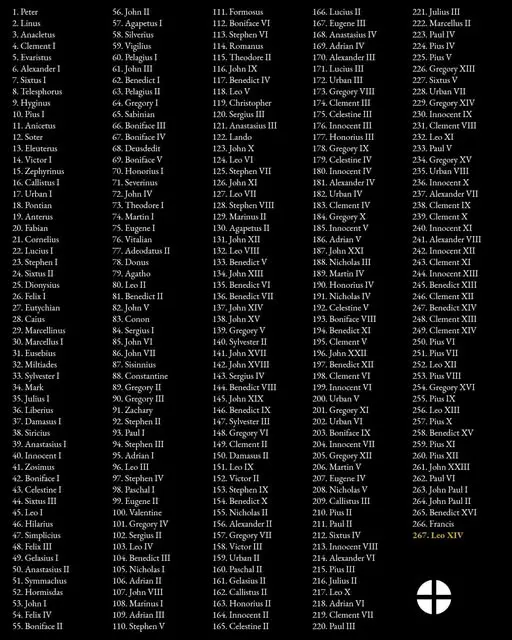The Catholic Church is Bible-Based
There are people who say if you want to be a good Christian, you need to belong to a good bible-based church.
I agree with them. That’s why I am grateful that I belong to the Catholic Church because it is bible-based.
If one reads today’s first reading for the Feast of St. Matthias in light of the events of last week, we see that the papal conclave that elected Cardinal Prevost to be Pope Leo XIV is bible-based. The conclave to elect a new pope follows how the early church named St. Matthias to take Judas Iscariot’s place. The comparison is not perfect. The Bible does not cover every situation. We count on the Holy Spirit to help us apply what is in the Bible to the situations we encounter as a Church and as individuals.
To understand this, I first take a moment to share two other Bible passages that provide a biblical basis for having a pope. In Matthew 16:13-20, Jesus calls Peter to a particular role in the church, most especially with his words, “and so I say to you, you are Peter, and upon this rock I will build my church.” We see this again in John 21:15-19 when Jesus tells Peter to feed and tend his sheep. Peter is not the only one called to be a shepherd for the Lord’s people but this passage emphasizes Peter’s place. As Catholics we understand the Pope as first among the bishops.
So, if Peter is given a particular role in the Church, the Church is then led by the Holy Spirit to name a successor to each pope. Pope Leo XIV is the 266th successor to Peter and serves today as the Vicar of Christ.

(as posted on the USCCB Facebook page, May 8, 2025)
The Bible does not discuss the naming of Peter’s first successor or the process by which his successor was chosen. Before one rushes to say that means it did not happen, we need to understand why the Bible does not include it. The answer is simple. The Bible does not include any mention of how Peter’s life came to an end. The Acts of the Apostles does not include that time period and none of the New Testament letters include anything about the end of Peter’s life and/or ministry. Yet, we know his life ended.
So, turning to today’s first reading, it begins with Peter exercising his role as first among the Apostles when he stood up in their midst and spoke of how Scripture calls them to name a successor to Judas Iscariot. Peter does not name the successor on his own but he does lead the group in doing so.
How many were gathered there? About 120 persons. How many cardinal electors is considered normal? About 120. Here lies the first evidence in this passage of how the conclave is biblically based.
Then Peter said, “Therefore, it is necessary that one of the men who accompanied us the whole time the Lord Jesus came and went among us, beginning from the baptism of John until the day on which he was taken up from us, become with us a witness to his resurrection.” To be Judas Iscariot’s successor, a person had to know Jesus himself. To be selected as the next pope, one has to be baptized, one has to know Jesus. Again, the papal election process follows what we read in Scripture.
Then the group gathered with Peter proposed two. In the days leading up to the papal conclave, there was much discussion about qualities needed in the new pope. Much was proposed.
Then, the group gathered with Peter prayed. As the papal conclave began last the week, the cardinals first gathered together for Mass.
The group gathered with Peter cast lots. It was not an election as we hold in our civil elections in our democratic nation. Naming the successor to Judas Iscariot was not meant to be an election like our civil elections. It was a process meant to reveal to them the one the Lord had chosen to succeed Judas Iscariot. “Then they prayed, “You, Lord, who know the hearts of all, show which one of these two you have chosen to take the place in this apostolic ministry from which Judas turned away to go to his own place.” Then they gave lots to them, and the lot fell upon Matthias, and he was counted with the Eleven Apostles.”
The election of a new pope is not meant to be human beings selecting on their own who is to be the next pope. The papal conclave is meant to be a process that trusts the Holy Spirit to reveal who the Lord has “chosen to take the place in this apostolic ministry.”
Now, we trust that the Holy Spirit did indeed select Cardinal Prevost as Pope Leo XIV and we pray everyday that Pope Leo XIV is led by the Holy Spirit and does what the Lord asks of him as his Vicar on earth.
Peace,
Fr. Jeff
